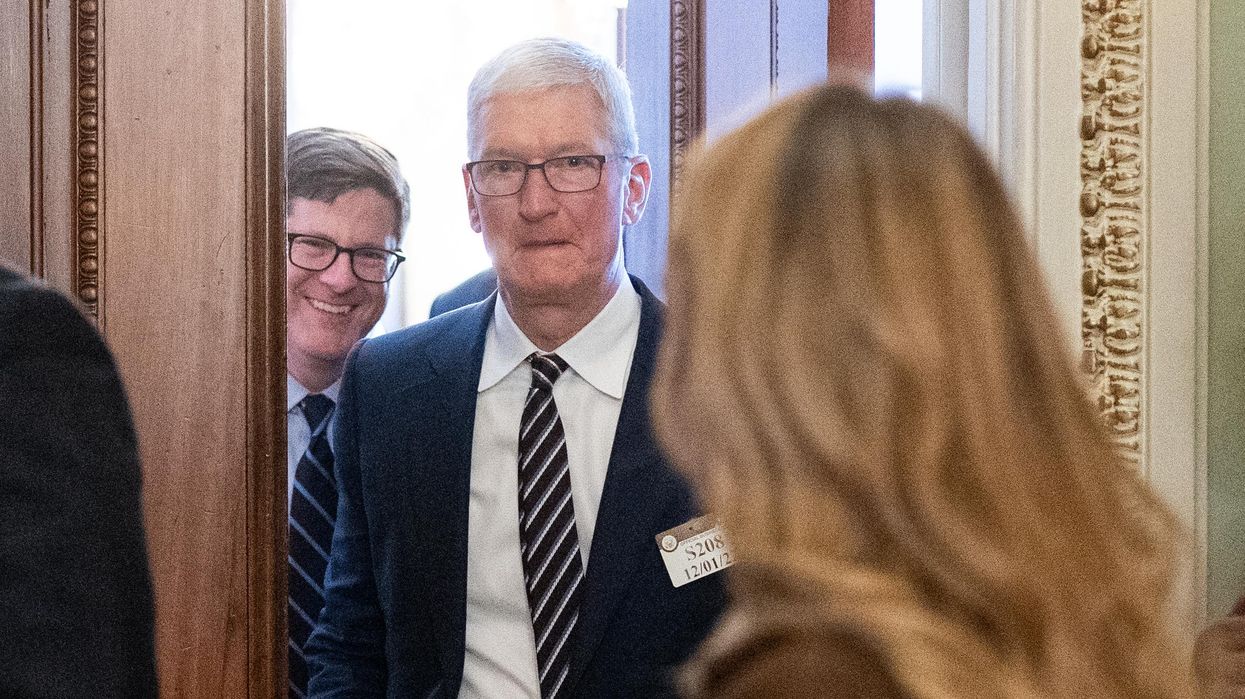
Bill Clark/CQ-Roll Call, Inc via Getty Images

Apple CEO Tim Cook was grilled Thursday over Apple's cozy relationship with the Chinese government — but he refused to answer any of the questions.
"Hi, Mr. Cook. Do you support the Chinese people’s right to protest?" Fox Business reporter Hillary Vaughn asked Cook as he walked through a hallway on Capitol Hill.
Cook, however, refused to answer. But Vaughn was undeterred.
"Do you have any reaction to the factory workers that were beaten and detained for protesting COVID lockdowns?" she followed up, referring to an incident that happened last month.
Cook still remained silent.
\u201c\ud83d\udea8WATCH: Apple CEO Tim Cook ignores our questions on China as zero-COVID lockdown protests rage in the country. Full video \ud83d\udc47\ud83c\udffb\u201d— Hillary Vaughn (@Hillary Vaughn) 1669932728
"Do you regret restricting AirDrop access that protesters used to evade surveillance from the Chinese government?" Vaughn then asked.
Cook again did not answer.
"Do you think it’s problematic to do business with the Communist Chinese Party when they suppress human rights?" the reporter questioned.
Cook, of course, refused to answer. Instead, he walked into a room to get away from Vaughn.
Protests across China are intensifying as the Chinese government forces onto its people intense "zero-COVID" lockdown policies.
The protests have attracted global attention because they represent one of the strongest repudiations of the Chinese Community Party's dictatorial policies under President Xi Jinping’s leadership.
To squash the unrest, China relies on internet and social media censorship. The government's job became easier after Apple, just weeks before the protests began, limited an important iPhone feature — AirDrop — that has proved critical in previous protests.
Fast Company explains the significance of the change:
Earlier this month, Apple quietly added restrictions to its AirDrop feature for users in China, preventing customers from leaving their devices open to receiving files from passersby. In effect, the tech giant has eliminated Chinese activists’ ability to reach strangers using the widely available peer-to-peer communication tool.
AirDrop allows users to semi-anonymously send files directly using Bluetooth to other Apple users nearby, as long as recipients have their devices set to be discoverable by “everyone.” Before Apple’s update, Chinese activists could use AirDrop to disseminate information to strangers in crowded areas without revealing their own personal details, or going through a centralized platform.
Apple’s new update, shipped with iOS 16.1.1 on November 9, has quashed this tactic. Now, Apple users in mainland China will only be able to set their discoverability to “everyone” for 10 minutes before they automatically switch back to “contacts only.” That means the vast majority of Apple devices in China will be unable to receive strangers’ AirDrops even if their users want them.
Apple, unfortunately, has a history of implementing changes to users in China that coincidently help the government exercise control over its people.
The technology giant has not publicly commented on its AirDrop change for Chinese users. Bloomberg, however, reported that it will be rolled out to all iPhone users next year.